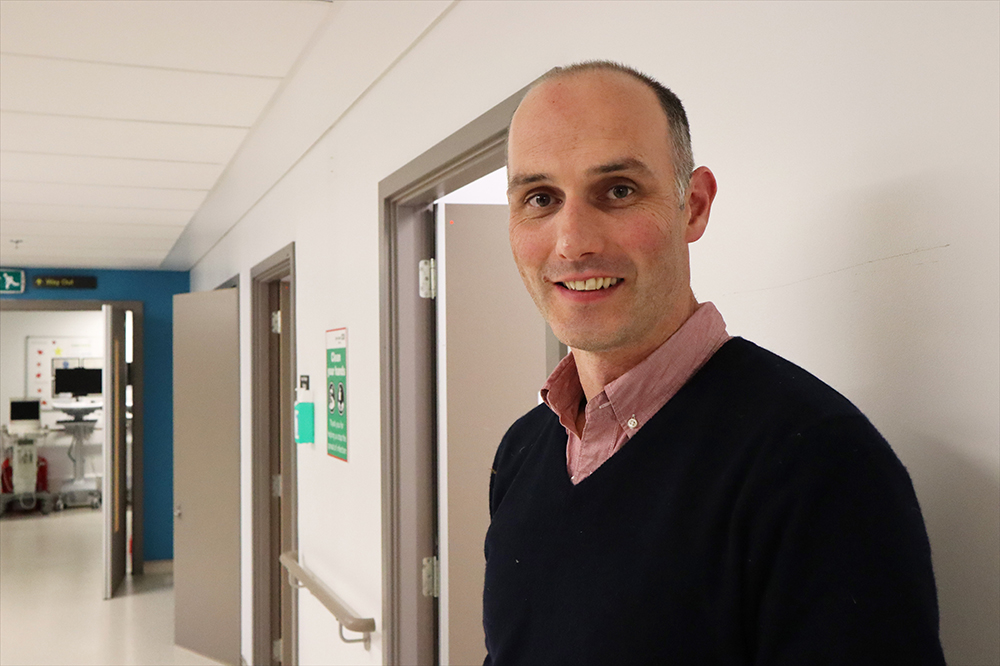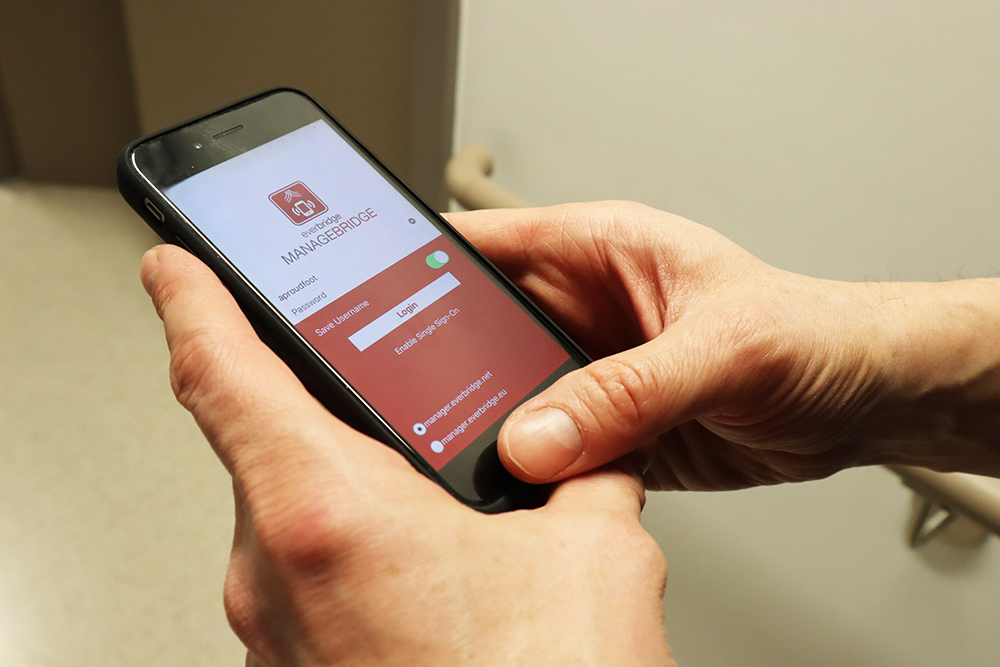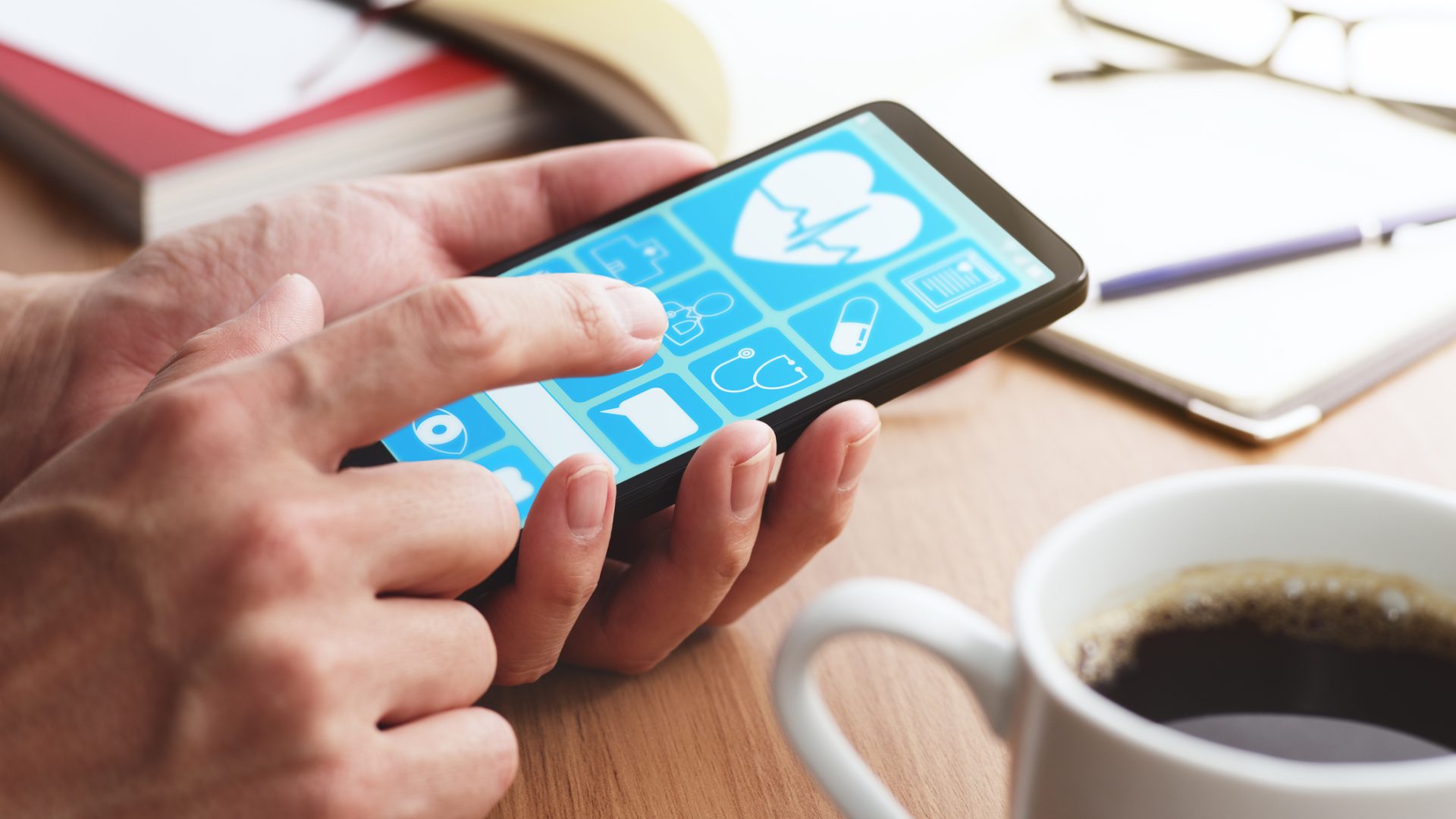The first of its kind
Cardiogenic shock can happen to anyone. It happens when your heart fails to pump effectively, leaving your blood supply unable to meet the demands of your body. What makes diagnosis difficult is that the symptoms of cardiogenic shock can be similar to a severe infection.
Roughly 5 patients each week have cardiogenic shock at Barts Health NHS Trust. Although access to heart centres has improved, the mortality in cardiogenic shock has remained the same over the last 10 years.
In 2016, Critical Care Consultant Alastair Proudfoot used a £19,000 grant to introduce the SHOCK app. The app, the first of its kind in the UK, sends an alert to professionals from multiple specialties to join an urgent conference call and discuss patients’ treatment options.

Critical Care Consultant Alastair Proudfoot
Bringing specialists together
If a patient at a Barts Health NHS Trust hospital is suspected of having cardiogenic shock, an alert is sent out on the app to a group of heart specialists to dial in to a SHOCK conference call. The app uses the same software that the Metropolitan Police use for crisis management.
No matter what time of day, a group of specialists including cardiologists and heart surgeons, can discuss whether the patient has cardiogenic shock, whether a pump should be used, and the logistics of getting support to them in a timely manner, which may involve sending a team out to them.
Revolutionising patient care
“It has revolutionised the way we deliver care,” says Dr Proudfoot. “It’s novel in the UK, no other heart centres are using this. Not because they don’t believe in the technology, but because there’s no funding.
“You need to make decisions rapidly, in real time. The SHOCK app allows us to bring collective expertise to the patient bedside, using the pumps for patients who will most likely benefit.”

The SHOCK app
Life-saving treatment
“We had a patient recently who had an existing heart condition and was pregnant with her first child. During preparation for delivery at The Royal London Hospital, her heart stopped and she had a caesarean section whilst she was in cardiac arrest. After the SHOCK alert was raised, we went to The Royal London Hospital and put her on an ECMO pump. She made a remarkable recovery.”
“Another 19 year-old lady contracted E.coli infection from a takeaway meal. Initially, she went to her local hospital and then onto UCLH as her condition became more complicated. She was very unwell, with disease affecting her kidneys, liver, and eyes, as well as her heart. Following the SHOCK call, she was transferred to St Bartholomew’s Hospital for ECMO and I’m confident that she would not be alive without that treatment.”
Charity support
Barts Charity funds were used to kickstart the project for the first three years. Dr Proudfoot adds: “With Barts Charity funding, we could demonstrate the clinical effectiveness of the technology. The hospital now funds it because we were so convinced of its benefits. Everyone found it transformative. There is no way we could have done that without charity money.”


